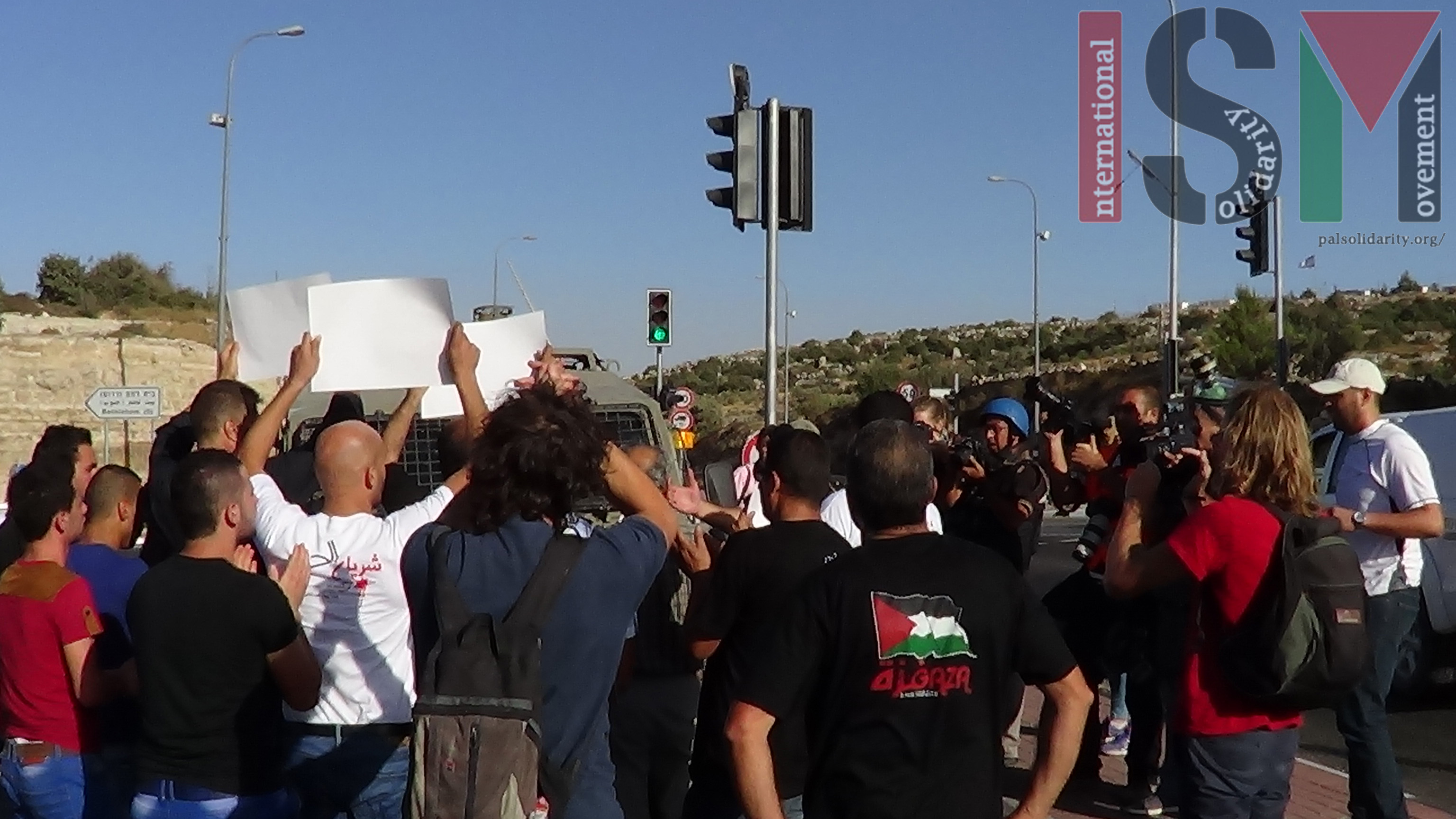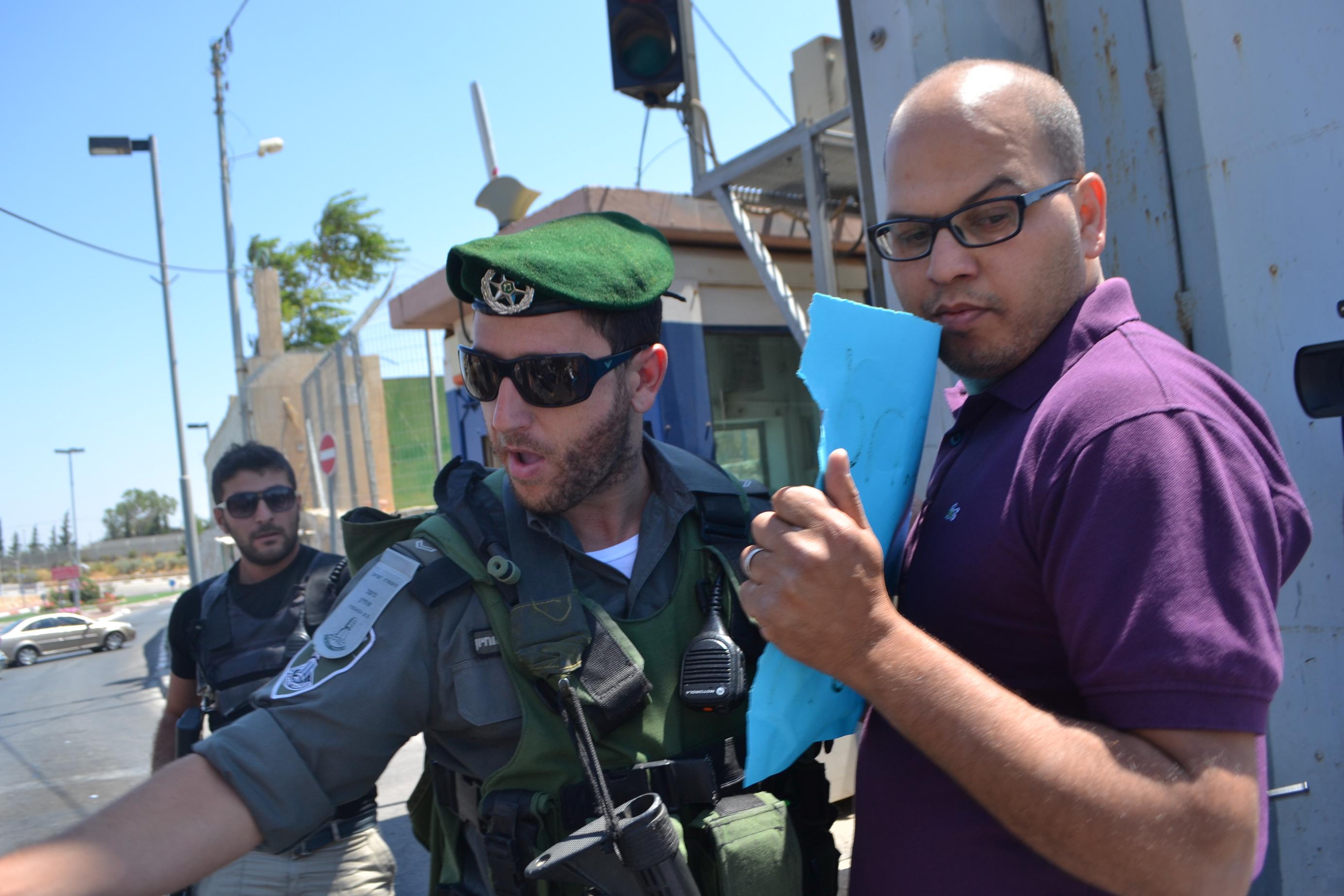Tag: Bethlehem
-
Palestinians block settler road in solidarity with Gaza
2nd August 2014 | International Solidarity Movement | Al-Khader, Occupied Palestine On the 30th July, approximately 40 Palestinian and international activists marched from al-Khader gate on the outskirts of Bethlehem and blocked Road 60, which connects all the illegal settlements in the area to Jerusalem, in protest over Israel’s attack on the people of Gaza. The group peacefully marched up the road leading…
-
“Knocking on the gates of Jerusalem”: demonstration against injustice of Israeli occupation
29th June 2013 | International Solidarity Movement, Khalil team | Bethlehem, Occupied Palestine Today, Saturday 29th June, a group of Palestinian activists demanded access to the occupied city of Jerusalem through the gate in the Apartheid Wall in Bethlehem. Their nonviolent demonstration also aimed to highlight Palestinian opposition to the US Secretary of State John…
-
A Steadfast Prelude to the Nakba: Duheisha resists
15th May 2013 | International Solidarity Movement | Hebron, Occupied Palestine By Team Khalil On the 14th May 2013 , a day before the Nakba, on the edge of Bethlehem, a demonstration to remember the day of the catastrophe in 1948 marched from Duheisha refugee camp to the entrance of the village of Al-Khader. Demonstrators…


